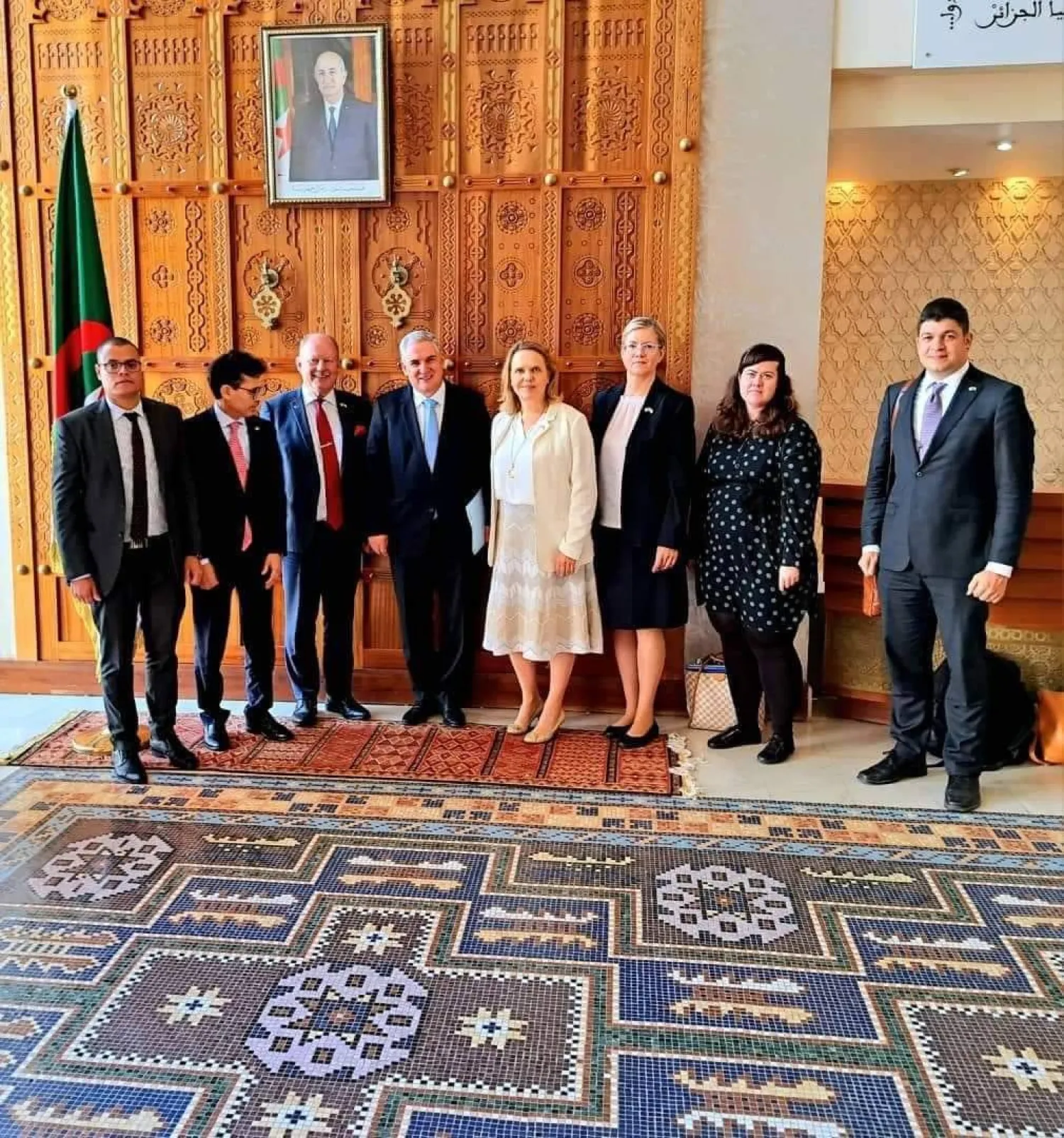The Finnish ministerial delegation participating in the conference during a meeting with officials from the Algerian Foreign Ministry (Algerian Foreign Ministry)
The 20th session of the African-Nordic countries ministerial meeting will discuss combating cross-border terrorism, irregular migration, climate change, and developing trade and economic cooperation between the two blocs.
During the three-day meeting, the Africans will also present the African Union’s mechanisms for rejecting regime change outside constitutional frameworks in light of the military coup in Niger in July.
According to the Algerian Foreign Ministry, the 20th edition will be held between Oct 16 and 18 under the theme “Africa-Nordic countries: strengthening dialogue based on common values.”
The meeting will witness a record “participation” compared to previous sessions, as it will be attended by about 20 foreign ministers, deputy ministers, officials, and many figures who head important bodies affiliated with the African Union.
Five northern European countries will participate in the conference: Sweden, Denmark, Norway, Finland, and Iceland, with representatives from more than twenty African nations.
The discussions will address previous sessions, strengthening dialogue and consultation between African and Nordic countries on essential international peace and security issues, sustainable development, and economic partnership, highlighting the broad spectrum of topics.
The conference will focus on boosting multilateral cooperation between the two groups within international organizations, particularly emphasizing the United Nations.
The partnership aims to amplify their collective impact on the global stage.
The Algerian Foreign Ministry added that the meeting aims to develop economic and commercial cooperation and activate the opportunities to expand two-way partnerships and investments.
Africans seek the Nordic countries’ help to rebuild their economic systems and adapt to cognitive transformations and the technological boom humanity is experiencing.
The meeting brings together components from the North and South, driven by a clear common will towards cooperation and harmony and a growing hope for a promising future.
They hope it recognizes equal opportunities and sharing benefits despite the rising severity of crises, especially in the African continent, which needs international efforts to help it overcome these adverse situations.
The meeting will discuss a paper on the wave of unrest and crises ravaging African countries and weakening their cohesion, especially in Mali, which has been experiencing internal conflict for more than 30 years.
The region also witnessed political coups and turmoil that further aggravated poverty and famine.
Algeria believes this situation has created an opportunity for extremists to push young people to terrorism and organized crime and paved the way for clandestine migration networks to send large numbers of migrants to Nordic countries and Europe.
This year’s session boasts a comprehensive agenda, encompassing three pivotal conferences to foster collaboration and address critical issues. They will address “Peace, Security, and Conflict Resolution,” “Economic Partnership,” and “Multilateral Cooperation.”









